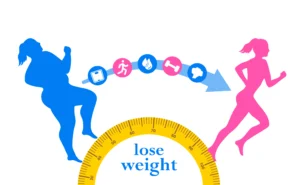Can Ovarian Cysts Rupture?

Although ovarian cysts will develop without any symptoms and recede without any medical intervention in many women, there are potential and serious complications associated with this condition. These include ovarian cysts rupture, torsion or pressure on nearby organs. Ruptured ovarian cysts, apart from being painful may lead to other serious complications like twisting the ovary, because of its size and location. This may lead to potential infertility also. Leakage of cystic fluid into abdominal cavity may lead to sepsis or haemorrhagic complications. In the long run, a women who has experienced an ovarian cyst rupture may suffer from chronic pain syndrome.
Ovarian cysts more than 4 cms in size, are likely to twist the ovary. Twisting, also referred to as torsion is more likely to occur if the cyst is accompanied by a tumor. The ovarian torsion restricts blood supply to the ovary causing death of the ovarian tissues, known as ovarian necrosis. Death of ovarian tissues will have effect of on your future fertility chances. Also, the inflammation caused, may lead to infection, septic shock and even death. There have been many cases of ovarian torsion leading to injury of the urinary tract as well as clotting in the ovarian blood vessels. Pulmonary emboli or blood clots in the lungs are considered secondary to blood clots in the ovarian tissues. The remedy for a twisted ovary is only an open-abdomen surgery rather than the laparoscopic method.
Ovarian cysts rupture is often complicated by haemorrhage. Abdominal haemorrhage is different from haemorrhage from ruptured endometriomas. When endometriomas ruptures, the blood that leaks into the abdominal cavity is from the cyst itself. It has been clinically observed that the right ovary is often involved in ovarian cysts rupture and haemorrhagic complications than the left one. This is mainly because the left ovary is in part cushioned by the large bowel, preventing damage from trauma and twisting. The part of the bowel behind the right side ovary provides less cushioning support exposing the right ovary to twisting. An ovarian cyst rupture complicated by haemorrhage will require surgery to either stop bleeding or removal of the bleeding organ completely.
A woman with a ruptured ovarian cyst may experience pain just prior to or just after the menstrual period. Other more generalized symptoms will be fever and nausea with vomiting. Women whose cyst has ruptured may experience weakness, dizziness or fainting. These symptoms are serious indications of internal bleeding. Although the symptoms of a ovarian cyst rupture are similar to those present when an ovarian cyst has not ruptured, one should not ignore these symptoms and wait for them to go away.







